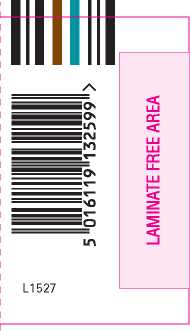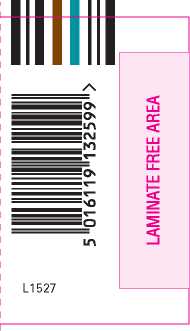Metharose Sugar Free 1Mg/1Ml Oral Solution
PAGE 2 - 52mm x 97mm PAGE 3 - 52mm x 98mm PAGE 4 - 52mm x 98mm PAGE 5 - 52mm x 96mm PAGE 6 - 52mm x 96mm PAGE 7 - 52mm x 98mm PAGE 8 - 52mm x 98mm PAGE 9 - 52mm x 100mm
Rnsemon^ Patient Infonmation Leaflet
Read all of this leaflet carefully before you start taking this medicine.
• Keep this leaflet. You may need to read it again.
• If you have any further questions, ask your doctor or pharmacist.
• This medicine has been prescribed only for you. Do not pass it on to others. It may harm them, even if their symptoms are the same as yours.
• If any of the side effects gets serious, or if you notice any side effects not listed in this leaflet, please tell your doctor or pharmacist.
In this leaflet
1. What Metharose is and what it is used for
2. Before you take Metharose
3. How to take Metharose
4. Possible side effects
5. How to store Metharose
6. Further information
PAGE 1 - 52mm x 100mm
500ml

Each 5ml contains 5mg Methadone Hydrochloride.
This product also includes methyl and propyl hydroxybenzoates (E218 and E216), propylene glycol (E1520) and liquid maltitol (E965). See leaflet for further information.
Administration: For oral use.
Read the package leaflet before use.
This medicine can make you feel sleepy. Do not drive while taking this medicine until you know how it makes you feel.
See the leaflet inside for more information.
Storage:
Do not store above 25°C. Protect from light.
Keep out of the sight and reach of children.
Manufactured by the MA Holder:
Rosemont Pharmaceuticals Ltd.,
Leeds LS11 9XE, UK.
PL 0427/0106 L1527

BASE PAGE - 52mm x 144mm
The name of your medicine is Metharose. It contains methadone hydrochloride. This belongs to a group of medicines called Narcotic Analgesics.
Metharose is used:
• to treat opioid drug addiction
• to treat moderate to severe pain
Do not take Metharose and tell your doctor if:
• you are allergic (hypersensitive) to methadone or any other ingredients in this liquid (see section 6 below). An allergic reaction can include a rash, itching or shortness of breath
• you have severe breathing problems or a history of asthma. You must not use this medicine during an asthma attack. If you give this medicine to yourself (self-administration), wait until the asthma attack has passed and you are fully recovered
• you are taking Monoamine Oxidase Inhibitors (MAOIs) used to treat depression or if you have taken a MAOI medicine in the past two weeks (see 'Taking other medicines')
• you are dependent on any other drugs
• you are in labour (
• you have phaeochromocytoma, a tumour of the adrenal glands
• you have a bowel disorder known as paralytic ileus
• you have or have recently had a head injury
• children must not be given this medicine.
Do not take this medicine if any of the above apply to you. If you are not sure, talk to your doctor before taking Metharose.
Take special care with Metharose
Before you take this medicine, tell your doctor if:
• you have liver or kidney problems
• you have problems with your gallbladder and bile duct
• you have epilepsy
• you are addicted to alcohol
• you have low thyroid function (hypothyroid)
• you have problems with your adrenal glands. These are linked to your kidneys
• you have an enlarged prostate gland
• you have low blood pressure
• you are in shock
• you have a muscle weakness disease called myasthenia gravis
• you have bowel problems
• you have a history of irregular heart beat
• you have a history of heart disease
• you have a family history of people dying suddenly without cause
• you have low potassium, sodium or magnesium levels
• you are pregnant or breast-feeding
• you are extremely ill or an older person. You may be more sensitive to the medicine.
If you are not sure if any of the above apply to you, talk to your doctor or pharmacist before taking Metharose.
Taking other medicines
Please tell your doctor or pharmacist if you are taking or have recently taken any other medicines. This includes medicines bought without a prescription, including herbal medicines.
This is because Metharose can affect the way some other medicines work. Also some medicines can affect the way Metharose works.
You must not take Metharose:
• at the same time or within 2 weeks of taking Monoamine Oxidase Inhibitors (MAOIs).
Some medicines can increase the risk of heart problems when used with Metharose.
p ©
Talk to your doctor before taking Metharose if you are taking:
• medicines for heart problems such as verapamil and enalapril
• medicines which affect electrolyte balance such as diuretics (water tablets) or lithium.
Tell your doctor if you are taking any of the following medicines:
• medicines that dull your senses such as medicines for depression (for example, fluvoxamine, fluoxetine), medicines to help you sleep (including anaesthetics) and medicines to calm you down called tranquillisers
• cimetidine, used to treat stomach ulcers
• rifampicin, used to treat tuberculosis (TB)
• medicines used to treat epilepsy such as phenytoin, carbamazepine, phenobarbital and primidone
• medicines that make your urine acidic such as ascorbic acid (vitamin C)
• narcotic painkillers such as codeine and pentazocine
• naloxone used to reverse the effects of opioid drugs
• medicines used to stop opioid drugs working such as naltrexone and buprenorphine
• medicines used to treat HIV such as nevirapine, efavirenz, abacavir and nelfinavir. The doctor may have to change the amount of methadone you take whilst on these medicines
• antibiotics such as ciprofloxacin or macrolide antibiotics for example erythromycin (
• medicines used to treat fungal infections such as ketoconazole or fluconazole
• St. John's Wort - a herbal preparation for depression
• cyclizine, domperidone and metoclopramide used to treat nausea and vomiting
• medicines used to treat Parkinson's disease and atropine
• mexiletine used to treat unusual heart rhythms.
If any of the above apply to you, talk to your doctor before taking Metharose.
Taking Metharose with food and drink
Do not drink alcohol whilst taking Metharose. This is because Metharose can make you feel sleepy and drinking alcohol will make you even more sleepy.
Grapefruit juice may effect how your methadone works.
Pregnancy and Breast-feeding
• talk to your doctor before taking Metharose if you are pregnant or likely to become pregnant
• take care if you are taking a pregnancy test as the methadone may interfere with the results
• you should not take this medicine whilst you are in labour
• do not breast-feed if you are taking Metharose. Talk to your doctor or midwife if you are thinking of breast-feeding while you are taking methadone as it may affect your baby.
©
Driving and using machines
Metharose can severely affect your ability to drive or use machines as it may make you sleepy or dizzy. You should only start doing these activities again with the permission of your doctor.
• Do not drive while taking this medicine until you know how it affects you.
• It is an offence to drive if this medicine affects your ability to drive.
• However, you would not be committing an offence if:
- The medicine has been prescribed to treat a medical or dental problem and
- You have taken it according to the instructions given by the prescriber or in the information provided with the medicine and
- It was not affecting your ability to drive safely
Talk to your doctor or pharmacist if you are not sure whether it is safe for you to drive while taking this medicine.
Important information about what is in Metharose:
This medicine contains:
• methyl and propyl parahydroxybenzoates. These may cause an allergic reaction. This allergy may happen some time after starting the medicine
• liquid maltitol. If your doctor has told you that you cannot tolerate some sugars, see your doctor before taking this medicine.
Take this medicine as your doctor or pharmacist has told you. Look on the label and ask your doctor or pharmacist if you are not sure.
Taking this medicine
• this medicine contains 1mg of methadone in each 1ml
• take this medicine by mouth.
Adults
For addiction
• the starting dose is 10mg to 20mg (10ml to 20ml) each day
• the doctor can increase this to 40mg to 60mg (40ml to 60ml) each day.
For pain
• the usual dose is 5mg to 10mg (5ml to 10ml) every 6 to 8 hours
• the dose may be changed by your doctor.
Older people and very ill people
• if you have to have repeated doses of this medicine, the doctor may want to monitor you more closely.
PAGE 10 - 52mm x 98mm
PAGE 11 - 52mm x 98mm
PAGE 12 - 52mm x 96mm
PAGE 13 - 52mm x 96mm
PAGE 14 - 52mm x 98mm
PAGE 15 - 52mm x 98mm
PAGE 16 - 52mm x 97mm
Children
Children must not take this medicine.
If you take more Metharose than you should
If you take more of this medicine than you should, talk to a doctor or go to your nearest hospital straight away. Take the medicine pack with you.
If you forget to take Metharose
• if you forget a dose do not take it. Wait until the next dose is due and take only that amount
• do not take a double dose (two doses at the same time) to make up for a forgotten dose.
If you stop taking Metharose
• do not stop taking this medicine unless your doctor tells you to as you may suffer withdrawal effects
• your doctor will tell you how to lower the dose gradually.
If you have any further questions on the use of this medicine, ask your doctor or pharmacist.

Like all medicines, Metharose can cause side effects although not everybody gets them.
Stop taking this medicine and see a doctor straight away if you have an allergic reaction to Metharose.
An allergic reaction may include:
• swelling of your face, lips, tongue or throat or difficulty breathing or swallowing
• severe itching of your skin with raised lumps.
Stop taking this medicine and see a doctor straight away if you have any of the following:
• heart problems. The signs of this may include changes in the way your heart beats, such as it beating faster or missed heart beats, breathing difficulties and dizziness
• if your breathing becomes slow and shallow
• worsening of the pressure inside your head if you already have this condition following an injury to your brain or brain disease.
Keep taking the medicine but tell your doctor straight away if you get any of the following side effects:
• if you have asthma and it gets worse.
Tell your doctor if you get any of these side effects:
Very common (affects more than 1 in 10 people)
• feeling sick (nausea) or being sick (vomiting).
Common (affects less than 1 in 10 people)
• feeling weak, tired
• weight gain
• water retention
• constipation
• rash, that may appear and disappear
• sweating a lot more than usual
• blurred vision, small pupils, dry eyes
• feeling of dizziness
• changes in your mood, feeling "high" or over excited, feeling drowsy
• seeing or hearing things that are not there (hallucinations).
Uncommon (affects less than 1 in 100 people)
• feeling dizzy, particularly when standing up. This may be a sign that you have low blood pressure
• headache
• feeling down (dysphoria), agitation, confusion, difficulty sleeping
• itching, rashes
• dry mouth or nose, inflammation of the tongue, facial flushing
• breast growth and production of breast milk
• difficulty in passing water (urine), pain in the lower back and abdomen caused by muscle spasms
• low body heat (hypothermia)
• lower sexual urge or desire
• painful periods or lack of periods.
The following side effects have also been reported
• loss of appetite
• swollen arms and legs. This may be a sign of your body holding onto more water than usual
• reduction in blood platelets, which increase the risk of bleeding or bruising
• low potassium and magnesium which will be found by blood tests
• eye disorders in newborn babies.
(13
You may notice that some of the side effects become less severe with time as you get used to the methadone.
When taken for a long period of time, it is possible that you may become dependent on Metharose.
If any of the side effects gets serious, or if you notice any side effects not listed in this leaflet, please tell your doctor or pharmacist.
Reporting of side effects
If you get any side effects, talk to your doctor or pharmacist. This includes any possible side effects not listed in this leaflet. You can also report side effects directly via the Yellow Card Scheme at www.mhra.gov.uk/yellowcard. By reporting side effects you can help provide more information on the safety of this medicine.
• Keep out of the sight and reach of children
• Store below 25°C. Protect from light
• Do not use after the expiry date (month, year) stated on the label and carton
• If it is out of date or you no longer want it, take it back to the pharmacy
• Do not use Metharose if you notice anything wrong with the medicine. Talk to your pharmacist
• Medicines should not be disposed of via wastewater or household waste. Ask your pharmacist how to dispose of medicines no longer required. These measures will help to protect the environment.
What Metharose contains
• The active ingredient is methadone hydrochloride
• The other ingredients are methyl hydroxybenzoate (E218), propyl hydroxybenzoate (E216), propylene glycol (E1520), caramel (E150), liquid maltitol (E965) and purified water.
What Metharose looks like and contents of the pack
• A brown solution.
It comes in a brown glass bottle holding 500ml of solution.
Marketing Authorisation Holder and Manufacturer
Rosemont Pharmaceuticals Ltd., Yorkdale Industrial Park, Braithwaite Street,
Leeds, LS11 9XE, UK.
This leaflet was last revised in 02/2016.
E
<D
cc

Each 5ml contains 5mg Methadone Hydrochloride.
This product also includes methyl and propyl hydroxybenzoates (E218 and E216), propylene glycol (E1520) and liquid maltitol (E965). See leaflet for further information.
Administration: For oral use.
Read the package leaflet before use.
This medicine can make you feel sleepy. Do not drive while taking this medicine until you know how it makes you feel.
See the leaflet inside for more information.
Storage:
Do not store above 25°C. Protect from light.
Keep out of the sight and reach of children.
Manufactured by the MA Holder:
Rosemont Pharmaceuticals Ltd.,
Leeds LS11 9XE, UK.
PL 0427/0106

PAGE 1 - 52mm x 100mm PAGE 10 - 52mm x 98mm PAGE 11 - 52mm x 98mm PAGE 12 - 52mm x 96mm PAGE 13 - 52mm x 96mm PAGE 14 - 52mm x 98mm PAGE 15 - 52mm x 98mm PAGE 16 - 52mm x 97mm
|
• |
• • •• |
• • |
• |
• |
• | |||||||
|
• |
• |
• |
• |
• | ||||||||
|
• |
• |
• • |
• • |
• |
• |
• |
• |
• • |
• | |||
|
• |
• • |
• |
• |
• | ||||||||
|
• • |
• |
• |
• |
• • |
• |
• | ||||||
|
• |
• |
• • |
• |
• |
• |
• |
• |
• |
• |
• • | ||
|
• |
• • |
• |
• |
• |
• |
• • |
• |
• |
• | |||
|
• |
• |
• |
• |
• |
• |
• |
• |
• |
• |
• |
BASE PAGE - 52mm x 144mm

Braille reads:
metharose #1 mg/#1 ml oral solution
Read all of this leaflet carefully before you start taking this medicine.
• Keep this leaflet. You may need to read it again.
• If you have any further questions, ask your doctor or pharmacist.
• This medicine has been prescribed only for you. Do not pass it on to others. It may harm them, even if their symptoms are the same as yours.
• If any of the side effects gets serious, or if you notice any side effects not listed in this leaflet, please tell your doctor or pharmacist.
In this leaflet
1. What Metharose is and what it is used for
2. Before you take Metharose
3. How to take Metharose
4. Possible side effects
5. How to store Metharose
6. Further information
PAGE 1 - 52mm x 100mm
500ml

Each 5ml contains 5mg Methadone Hydrochloride.
This product also includes methyl and propyl hydroxybenzoates (E218 and E216), propylene glycol (E1520) and liquid maltitol (E965). See leaflet for further information.
Administration: For oral use.
Read the package leaflet before use.
This medicine can make you feel sleepy. Do not drive while taking this medicine until you know how it makes you feel.
See the liaflet Aside for more information.
D/no^tore##25°C. Protectffom lii^t.
Keep out of the sight and reach of children.
• • • • • • •
Manufactured by the MA Holder:
Rosemont Pharmaceuticals Ltd.,
Leeds LS11 9XE, UK.
PL 0427/0106 L1527

BASE PAGE - 52mm x 144mm
The name of your medicine is Metharose. It contains methadone hydrochloride. This belongs to a group of medicines called Narcotic Analgesics.
Metharose is used:
• to treat opioid drug addiction
• to treat moderate to severe pain
Do not take Metharose and tell your doctor if:
• you are allergic (hypersensitive) to methadone or any other ingredients in this liquid (see section 6 below). An allergic reaction can include a rash, itching or shortness of breath
• you have severe breathing problems or a history of asthma. You must not use this medicine during an asthma attack. If you give this medicine to yourself (self-administration), wait until the asthma attack has passed and you are fully recovered
• you are taking Monoamine Oxidase Inhibitors (MAOIs) used to treat depression or if you have taken a MAOI medicine in the past two weeks (see 'Taking other medicines')
• you are dependent on any other drugs
• you are in labour (
• you have phaeochromocytoma, a tumour of the adrenal glands
• you have a bowel disorder known as paralytic ileus
• you have or have recently had a head injury
• children must not be given this medicine.
Do not take this medicine if any of the above apply to you. If you are not sure, talk to your doctor before taking Metharose.
Take special care with Metharose
Before you take this medicine, tell your doctor if:
• you have liver or kidney problems
• you have problems with your gallbladder and bile duct
• you have epilepsy
• you are addicted to alcohol
• you have low thyroid function (hypothyroid)
• you have problems with your adrenal glands. These are linked to your kidneys
• you have an enlarged prostate gland
• you have low blood pressure
• you are in shock
• you have a muscle weakness disease called myasthenia gravis
• you have bowel problems
• you have a history of irregular heart beat
• you have a history of heart disease
• you have a family history of people dying suddenly without cause
• you have low potassium, sodium or magnesium levels
• you are pregnant or breast-feeding
• you are extremely ill or an older person. You may be more sensitive to the medicine.
If you are not sure if any of the above apply to you, talk to your doctor or pharmacist before taking Metharose.
Taking other medicines
Please tell your doctor or pharmacist if you are taking or have recently taken any other medicines. This includes medicines bought without a prescription, including herbal medicines.
This is because Metharose can affect the way some other medicines work. Also some medicines can affect the way Metharose works.
You must not take Metharose:
• at the same time or within 2 weeks of taking Monoamine Oxidase Inhibitors (MAOIs).
Some medicines can increase the risk of heart problems when used with Metharose.
p ©
Talk to your doctor before taking Metharose if you are taking:
• medicines for heart problems such as verapamil and enalapril
• medicines which affect electrolyte balance such as diuretics (water tablets) or lithium.
Tell your doctor if you are taking any of the following medicines:
• medicines that dull your senses such as medicines for depression (for example, fluvoxamine, fluoxetine), medicines to help you sleep (including anaesthetics) and medicines to calm you down called tranquillisers
• cimetidine, used to treat stomach ulcers
• rifampicin, used to treat tuberculosis (TB)
• medicines used to treat epilepsy such as phenytoin, carbamazepine, phenobarbital and primidone
• medicines that make your urine acidic such as ascorbic acid (vitamin C)
• narcotic painkillers such as codeine and pentazocine
• naloxone used to reverse the effects of opioid drugs
• medicines used to stop opioid drugs working such as naltrexone and buprenorphine
• medicines used to treat HIV such as nevirapine, efavirenz, abacavir and nelfinavir. The doctor may have to change the amount of methadone you take whilst on these medicines
• antibiotics such as ciprofloxacin or macrolide antibiotics for example erythromycin (
• medicines used to treat fungal infections such as ketoconazole or fluconazole
• St. John's Wort - a herbal preparation for depression
• cyclizine, domperidone and metoclopramide used to treat nausea and vomiting
• medicines used to treat Parkinson's disease and atropine
• mexiletine used to treat unusual heart rhythms.
If any of the above apply to you, talk to your doctor before taking Metharose.
Taking Metharose with food and drink
Do not drink alcohol whilst taking Metharose. This is because Metharose can make you feel sleepy and drinking alcohol will make you even more sleepy.
Grapefruit juice may effect how your methadone works.
Pregnancy and Breast-feeding
• talk to your doctor before taking Metharose if you are pregnant or likely to become pregnant
• take care if you are taking a pregnancy test as the methadone may interfere with the results
• you should not take this medicine whilst you are in labour
• do not breast-feed if you are taking Metharose. Talk to your doctor or midwife if you are thinking of breast-feeding while you are taking methadone as it may affect your baby.
©
Driving and using machines
Metharose can severely affect your ability to drive or use machines as it may make you sleepy or dizzy. You should only start doing these activities again with the permission of your doctor.
• Do not drive while taking this medicine until you know how it affects you.
• It is an offence to drive if this medicine affects your ability to drive.
• However, you would not be committing an offence if:
- The medicine has been prescribed to treat a medical or dental problem and
- You have taken it according to the instructions given by the prescriber or in the information provided with the medicine and
- It was not affecting your ability to drive safely
Talk to your doctor or pharmacist if you are not sure whether it is safe for you to drive while taking this medicine.
Important information about what is in Metharose:
This medicine contains:
• methyl and propyl parahydroxybenzoates. These may cause an allergic reaction. This allergy may happen some time after starting the medicine
• liquid maltitol. If your doctor has told you that you cannot tolerate some sugars, see your doctor before taking this medicine.
Take this medicine as your doctor or pharmacist has told you. Look on the label and ask your doctor or pharmacist if you are not sure.
Taking this medicine
• this medicine contains 1mg of methadone in each 1ml
• take this medicine by mouth.
Adults
For addiction
• the starting dose is 10mg to 20mg (10ml to 20ml) each day
• the doctor can increase this to 40mg to 60mg (40ml to 60ml) each day.
For pain
• the usual dose is 5mg to 10mg (5ml to 10ml) every 6 to 8 hours
• the dose may be changed by your doctor.
Older people and very ill people
• if you have to have repeated doses of this medicine, the doctor may want to monitor you more closely.
PAGE 10 - 52mm x 98mm
PAGE 11 - 52mm x 98mm
PAGE 12 - 52mm x 96mm
PAGE 13 - 52mm x 96mm
PAGE 14 - 52mm x 98mm
PAGE 15 - 52mm x 98mm
PAGE 16 - 52mm x 97mm
Children
Children must not take this medicine.
If you take more Metharose than you should
If you take more of this medicine than you should, talk to a doctor or go to your nearest hospital straight away. Take the medicine pack with you.
If you forget to take Metharose
• if you forget a dose do not take it. Wait until the next dose is due and take only that amount
• do not take a double dose (two doses at the same time) to make up for a forgotten dose.
If you stop taking Metharose
• do not stop taking this medicine unless your doctor tells you to as you may suffer withdrawal effects
• your doctor will tell you how to lower the dose gradually.
If you have any further questions on the use of this medicine, ask your doctor or pharmacist.

Like all medicines, Metharose can cause side effects although not everybody gets them.
Stop taking this medicine and see a doctor straight away if you have an allergic reaction to Metharose.
An allergic reaction may include:
• swelling of your face, lips, tongue or throat or difficulty breathing or swallowing
• severe itching of your skin with raised lumps.
Stop taking this medicine and see a doctor straight away if you have any of the following:
• heart problems. The signs of this may include changes in the way your heart beats, such as it beating faster or missed heart beats, breathing difficulties and dizziness
• if your breathing becomes slow and shallow
• worsening of the pressure inside your head if you already have this condition following an injury to your brain or brain disease.
Keep taking the medicine but tell your doctor straight away if you get any of the following side effects:
• if you have asthma and it gets worse.
Tell your doctor if you get any of these side effects:
Very common (affects more than 1 in 10 people)
• feeling sick (nausea) or being sick (vomiting).
Common (affects less than 1 in 10 people)
• feeling weak, tired
• weight gain
• water retention
• constipation
• rash, that may appear and disappear
• sweating a lot more than usual
• blurred vision, small pupils, dry eyes
• feeling of dizziness
• changes in your mood, feeling "high" or over excited, feeling drowsy
• seeing or hearing things that are not there (hallucinations).
Uncommon (affects less than 1 in 100 people)
• feeling dizzy, particularly when standing up. This may be a sign that you have low blood pressure
• headache
• feeling down (dysphoria), agitation, confusion, difficulty sleeping
• itching, rashes
• dry mouth or nose, inflammation of the tongue, facial flushing
• breast growth and production of breast milk
• difficulty in passing water (urine), pain in the lower back and abdomen caused by muscle spasms
• low body heat (hypothermia)
• lower sexual urge or desire
• painful periods or lack of periods.
The following side effects have also been reported
• loss of appetite
• swollen arms and legs. This may be a sign of your body holding onto more water than usual
• reduction in blood platelets, which increase the risk of bleeding or bruising
• low potassium and magnesium which will be found by blood tests
• eye disorders in newborn babies.
(13
You may notice that some of the side effects become less severe with time as you get used to the methadone.
When taken for a long period of time, it is possible that you may become dependent on Metharose.
If any of the side effects gets serious, or if you notice any side effects not listed in this leaflet, please tell your doctor or pharmacist.
Reporting of side effects
If you get any side effects, talk to your doctor or pharmacist. This includes any possible side effects not listed in this leaflet. You can also report side effects directly via the Yellow Card Scheme at www.mhra.gov.uk/yellowcard. By reporting side effects you can help provide more information on the safety of this medicine.
• Keep out of the sight and reach of children
• Store below 25°C. Protect from light
• Do not use after the expiry date (month, year) stated on the label and carton
• If it is out of date or you no longer want it, take it back to the pharmacy
• Do not use Metharose if you notice anything wrong with the medicine. Talk to your pharmacist
• Medicines should not be disposed of via wastewater or household waste. Ask your pharmacist how to dispose of medicines no longer required. These measures will help to protect the environment.
What Metharose contains
• The active ingredient is methadone hydrochloride
• The other ingredients are methyl hydroxybenzoate (E218), propyl hydroxybenzoate (E216), propylene glycol (E1520), caramel (E150), liquid maltitol (E965) and purified water.
What Metharose looks like and contents of the pack
• A brown solution.
It comes in a brown glass bottle holding 500ml of solution.
Marketing Authorisation Holder and Manufacturer
Rosemont Pharmaceuticals Ltd., Yorkdale Industrial Park, Braithwaite Street,
Leeds, LS11 9XE, UK.
This leaflet was last revised in 02/2016.
E
<D
cc

Each 5ml contains 5mg Methadone Hydrochloride.
This product also includes methyl and propyl hydroxybenzoates (E218 and E216), propylene glycol (E1520) and liquid maltitol (E965). See leaflet for further information.
Administration: For oral use.
Read the package leaflet before use.
This medicine can make you feel sleepy. Do not drive while taking this medicine until you know how it makes you feel.
See the leaflet inside for more information.
Storage:
Do not store above 25°C. Protect from light.
Keep out of the sight and reach of children.
Manufactured by the MA Holder:
Rosemont Pharmaceuticals Ltd.,
Leeds LS11 9XE, UK.
PL 0427/0106
